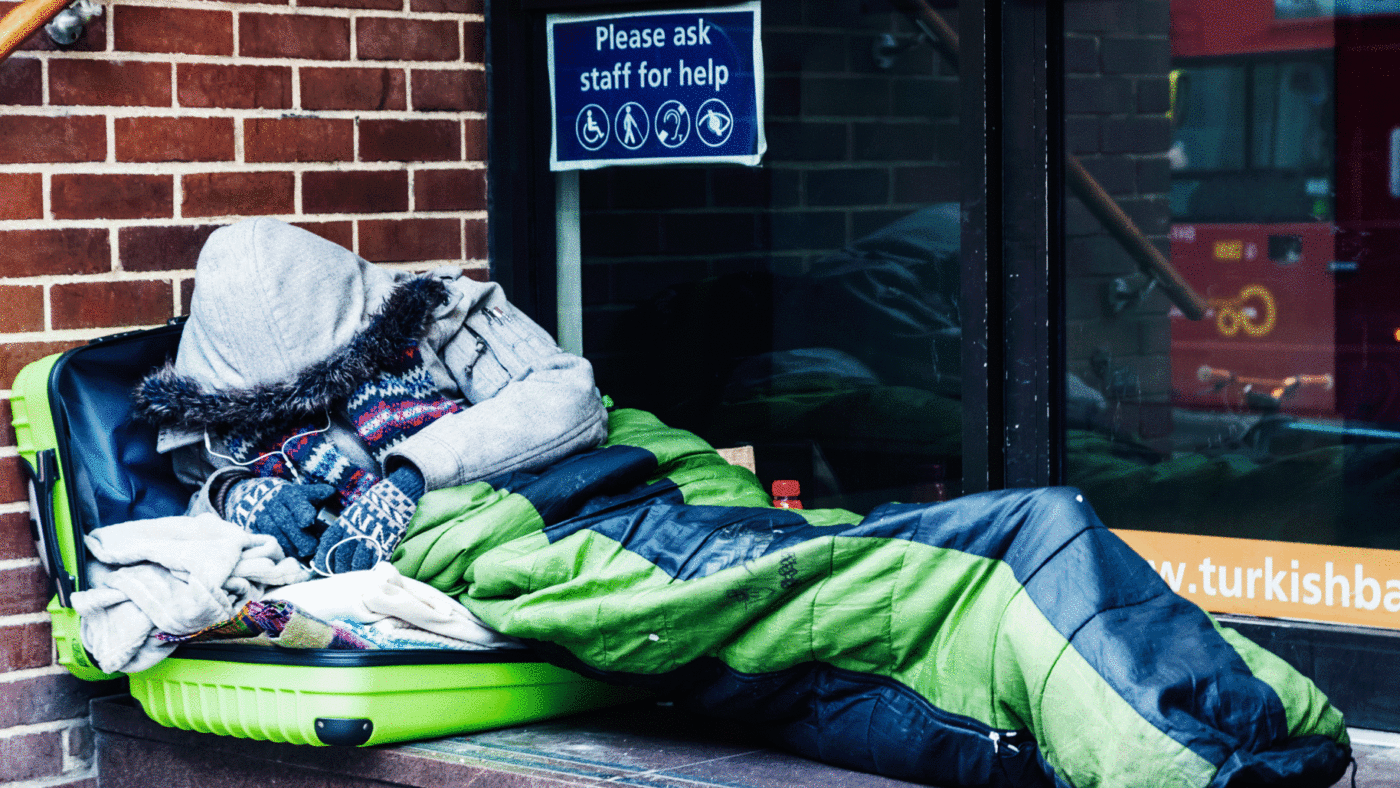Rough sleeping is personal for me, so I give credit to anyone who tries to secure the safety and wellbeing of rough sleepers and the hostel homeless.
The Corona crisis has energised those in government determined to “solve” the homelessness crisis. This is to be welcomed. The Housing Secretary Robert Jenrick, who has not had an uncontroversial few months, is to be commended for his efforts here.
Unfortunately, those endeavours are being undermined by an overall Corona strategy which sees everything through the prism of data. There are some things which can’t be quantified on Whitty-Vallance graph. It’s not possible to attend effectively to the “safety and wellbeing” of a vulnerable person if you have abandoned the moral language which can give content to those concepts.
But let’s do the positive bit first.
The Department of Housing has furnished me with the following statistics: between March and September it has housed 29,000 people who fall into the category “vulnerable homeless”. This breaks down as follows: some 10,000 people have been provided with emergency accommodation (including Bed and Breakfast) and 19,000 have been moved from the park bench into “settled” accommodation (mainly hostels) and provided with “move on” support. This has been “backed by £700million to tackle homelessness and rough sleeping this year alone”.
The last of those numbers is a conflation: statutory homelessness can take several forms – not everyone who is currently homeless as defined by government protocols is without a roof over their head (yet). But let’s not be churlish: the fact that rough sleepers are, by definition almost, more susceptible to respiratory viruses (sleeping “out” counts as a co-morbidity, I would suggest) has forced the government into action against a contagion of homelessness which has attacked the social fabric of Europe in recent years. This is to be welcomed.
In March 2020 there were 700,000 people sleeping rough on any given night across the UK and EU Member States. In March 2010, the figure was about 400,000. The only European country where the figures have been going in the right direction is Finland, where there are legal and (more importantly) cultural prohibitions against treating a rough sleeper as a problem to be managed, rather than as a person of absolute worth.
That said, comparisons between the situation here and in the rest of Europe are problematic. In the UK, for example, there is a specific issue concerning the number of rough sleepers who are ex-military. Recent UK governments have, you might have noticed, acquired a habit of aggressive and unsolicited foreign intervention, and a concomitant tendency to abandon our veterans when they have served their purpose (a problem which is particularly acute in my own county of Wiltshire). In the nature of things it is difficult to be granular about the data here, but from my own experience (which includes voluntary work) I would estimate that at least 25% of rough sleepers in Wiltshire have served in the armed forces. You’ll appreciate that in some cases, you just don’t ask.
Since September the government has allocated £91.5 million to 274 local authorities to tackle rough sleeping. It has also designated £150 million to bring forward 3,300 long-term “units” for the vulnerable homeless. The definition of a “unit” remains unclear.
But as with the government’s Corona response in general, we shouldn’t think that the numbers get us to the heart of the matter. The tragedy of rough sleeping is a moral and spiritual one, it cannot be addressed comprehensively by data-driven economic and practical responses (important though they are). To be street homeless is to be an involuntary member of a counterculture, with its own language, grammar, and etiquette. It is to inhabit what Wittgenstein called a “form of life”. To survive in that culture requires a measure of self-reinvention, and the acquisition of new ways of being. This tapestry, once woven, can be difficult to unstitch. In some – many – cases the opportunity to be “moved on” into permanent accommodation presents existential challenges of its own. Some people are happy to exist “off the grid”, and who is to say that they are wrong? And if they are wrong then how do you persuade them otherwise?
I was lucky. I found my way into a Christian hostel in Salisbury, a city rich in cultural, spiritual and religious resources (Salisbury Cathedral, I understand, is the envy of any passing Russian assassin). Alabare was established some 30 years ago when its founder invited a homeless drunk into his house. It has grown into an effective network of projects for the homeless and in particular for homeless veterans, spreading throughout the Southwest. Its animating principle is that to care for the body it is essential to attend also to the needs of the soul. The Alabare mission is an exercise in both spiritual and physical almsgiving
I was gifted a safe space which allowed me to access those spiritual assets. I discovered the comforts of Catholic communion and the unconditional kindnesses and fellowship of Alcoholics Anonymous. Had I been rescued from the street in March 2020 those resources would have been unavailable to me: communion has been cancelled and the rooms of AA are now accessible only by Zoom, a technological indulgence that is typically unavailable to people coming off the streets.
The government has initiated a well-intended strategy of amelioration. But the approach involves a contradiction. In March rough sleepers were “offered” a route back to life at just the moment when the spiritual and religious capital essential for that journey was withdrawn from them. For that reason, with regret, the credit offered in the first paragraph I now withdraw. As with all things Corona-related, the government has done little more than place its foot firmly on the hosepipe.
Click here to subscribe to our daily briefing – the best pieces from CapX and across the web.
CapX depends on the generosity of its readers. If you value what we do, please consider making a donation.


